Best Management Practices
Stormwater Affects Water Quality
Stormwater runoff can impact the water quality of local streams, creeks, and bayous. As rainwater flows over residential and commercial rooftops, lawns and landscaping, construction sites, and roadways, the water can carry sediment and other pollutants into the streets and gutters. The storm sewer system collects rainwater and conveys it directly into local flood control ditches and waterways without filtering or cleaning any of the runoff water. Sediment, litter, pesticides, animal wastes, fertilizers, and other harmful pollutants from suburban and business areas, facilities, construction sites, or District operations can have major downstream impacts on local waterways and beaches. Rainwater runoff moves most of these pollutants from a residence, facility, construction site, or place of business through the storm sewer system, and into the receiving water. However, lawn watering can also transport these pollutants.
Minimize the Impact
The following protocols are basic, general guidelines, and are, in no way, exhaustive

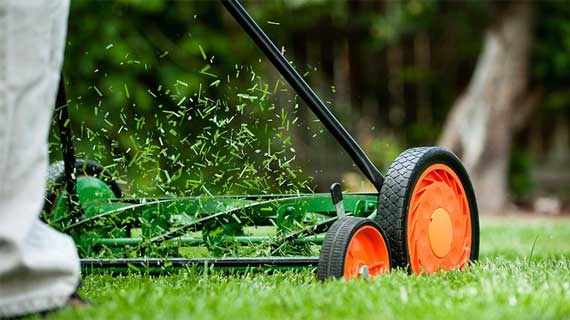
Proper Fertilization Practices
- Always read the label before fertilizing the lawn
- Follow the directions accordingly
- When necessary, hire professionals to test the soil or apply the chemicals for you
Points to Ponder
- Soil conditions are rarely tested prior to fertilizing the lawn
- Improper fertilization can allow excessive nutrients to wash into receiving waters
- Algae feed on the nutrients causing rapid-growth “blooms”
- Wildlife, plants, fish, and other aquatic organisms suffer from a lack of light and oxygen
- This can hinder fishing activities and other forms of contact recreation and have a negative impact on our drinking water
Proper Animal Waste Management & Disposal Practices
- Always pick up pet waste
- Carry disposable bags on your walk
- Throw away pet waste
- Encourage others to pick up pet waste
Points to Ponder
- Failure to pick up pet waste can allow it to be carried, by rainwater, directly into our local water bodies
- Improper disposal can also allow bacteria to wash into receiving waters
- Bacteria feed on nutrients deposited from over-fertilization causing “blooms”
- Excessive levels of bacteria adversely affect drinking water, wildlife, plants, fish, and other aquatic organisms
- Excessive levels of bacteria can hinder fishing and other forms of contact recreation
Proper Lawn Watering & Waste Disposal Practices
- Never blow grass clippings or lawn waste into the storm sewer system
- Bag it for the licensed waste haulers to transport or compost the waste into mulch
- Water the lawn during the early hours of the morning or late in the evening to maximize water absorption
- Set automatic sprinklers to only water as much as needed
- Avoid over-spray from sprinkler heads onto impervious surfaces like concrete
Points to Ponder
- Homeowners and sprinkler systems can over-water lawns
- Bacteria, fertilizer, lawn clippings, and other pollutants can be washed into receiving waters
- Grass clippings swept/blown into the storm sewer system decompose
- As the clippings decompose, they release nutrients into receiving waters
- Algae and bacteria feed on the nutrients causing rapid-growth “blooms”
- Wildlife, plants, fish, and other aquatic organisms suffer from a lack of light and oxygen
- This can impede fishing and other forms of contact recreation
Proper Use of Pesticides and Herbicides
- Always read the label before spraying pesticides or herbicides
- When necessary, hire professionals to apply the chemicals for you
Points to Ponder
- When applying pesticides and herbicides, homeowners often use too much poison
- Improper application can wash pesticides and herbicides into receiving waters
- The poisons accumulate in slow-moving creeks and bayous
- Wildlife, plants, fish, and other aquatic organisms can be exposed to harmful chemicals
- This can negatively impact our drinking water and impede fishing and other forms of contact recreation
Proper Car Washing Practices
- Use environmentally friendly soaps and minimize water runoff where practical
- Consider washing in the grass rather than the driveway
- Have the car washed at a commercial car wash
- Commercial car washes are required to treat the water before it goes into the storm sewer system
Points to Ponder
- Homeowners and volunteer car washes use soap and chemicals that flow, untreated, directly to the storm sewer system
- These chemicals accumulate in slow-moving creeks and bayous
- This can adversely affect our drinking water, wildlife, and impact plants, fish, and other aquatic organisms
- Fishing and other forms of contact recreation may be inhibited
Proper Trash & Household Hazardous Waste Disposal Practices
- Always properly dispose of waste in appropriate, secure receptacles
- Some licensed trash services will pick up household hazardous wastes, but only on certain dates
- Check with your trash services to see if these items can be collected
- Many communities have hazardous waste events, and/or local facilities that will accept these items for a small fee
Points to Ponder
- Household hazardous wastes are very common in residential areas
- Trash services typically do not pick up tires, paint, used oil, or batteries
- These hazardous materials are illegally dumped on vacant property or dumped in the storm sewer system
- If not disposed of properly, litter and trash may wash into the storm sewer system as well
- The pollutants move through the system, without treatment, and discharge directly to the receiving waters
- These occurrences can be harmful to our drinking water, wildlife, plants, fish, and other aquatic organisms
- Illegal dumping of trash and/or household hazardous waste may disrupt fishing activities and other forms of contact recreation
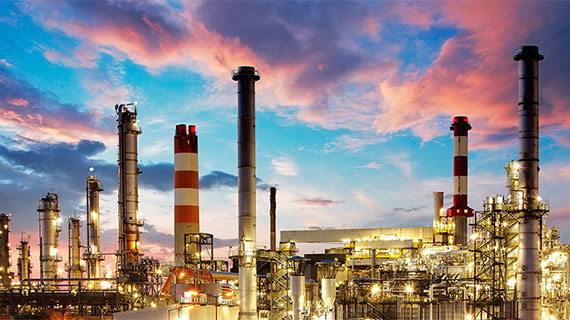
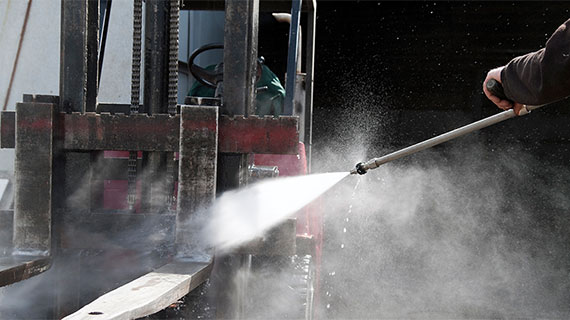
Proper Pressure Washing Practices
- Minimize pressure washing activities when practical
- Practice Pre-Cleaning
- Pick up trash and debris in the wash area
- Use dry methods first (absorbent, rags, sweeping, etc.) to clean oil and dirt from the surface to be washed and the area where wash water will drain across. This will reduce pollutants in wash water.
- Whenever possible, avoid soap and chemical cleansers when pressure washing
- Many of the cleaners can be more harmful to receiving waters than the grit and grime being washed away
Points to Ponder
- Many facilities pressure wash building exteriors, parking lots, and driveway areas
- Soaps and chemical cleansers are applied to remove grit and grime
- These pollutants are flushed into the storm sewer system untreated
- Pollutants from pressure washing and cleaning include heavy metals (copper, lead, nickel, and zinc), hydrocarbons (oil & grease), toxic chemicals (solvents, chlorinated compounds, glycols), acids and alkalies
- These pollutants may have a detrimental impact on wildlife, plants, fish, and other aquatic organisms
- Such pollutants can have a negative impact on our drinking water, fishing, and other forms of contact recreation
Proper Fleet Maintenance Practices
- Always maintain fleet vehicles in designated areas to avoid fluid spills
- Address all drips and spills, no matter how small, immediately
- Clean up scraps, drips, and residues
Points to Ponder
- Small leaks, drips, and spills create grime on the surface of parking lots and roadways
- Rainwater flushes these pollutants, untreated, into the storm sewer system
- This can contribute to the pollution in our drinking water, and adversely affect wildlife, plants, fish, and other aquatic organisms
- Excess release of these pollutants into our waterways can disrupt fishing activities and other forms of contact recreation
Proper Dumpster Maintenance Practices
- Trash should be handled by a licensed waste-hauling service
- Dumpsters should have lids to contain trash
- Dumpsters should be positioned away from any storm sewer inlets
- Persons responsible should routinely inspect for leaks
Points to Ponder
- Dumpster lids are often removed or forced open for ease of use
- Trash not contained blows into the storm sewer system and leaky dumpsters can spill into nearby grate inlets
- This can present harmful conditions for our drinking water, wildlife, plants, fish, and other aquatic organisms
- Fishing and other forms of contact recreation can be negatively affected by leaky dumpsters that spill into our waterways
Proper Parking Lot Maintenance Practices
- Parking lots should be kept free of trash and should be cleaned regularly
- Consider installing oil/grit/trash separator units to filter untreated parking lot runoff
- Consider utilizing Low Impact Development (LID)/Green Infrastructure implements
Points to Ponder
- Oil, grit, and silt can accumulate in parking lots
- Rainwater flushes these pollutants, untreated, into the storm sewer system
- These pollutants accumulate in slow-moving creeks and bayous
- Wildlife, plants, fish, and other aquatic organisms are exposed to these pollutants
- This can negatively impact our drinking water and impede fishing activities and other forms of contact recreation
Proper Detention Pond Maintenance Practices
- Detention ponds should be maintained to prevent water retainage and uncontrolled grass growth
- Trash should be removed as often as necessary to prevent discharges to receiving waters
- Mowing, maintenance, and litter pick-up should be performed on a regular basis
Points to Ponder
- Detention ponds serve facilities by controlling floodwaters
- Without regular mowing and trash clean out, detention ponds can't retain water
- Shallow water can diminish the pond’s flood capacity, attract undesirable insects and wildlife, and allow bacteria and algae to “bloom”
- Excessive levels of bacteria adversely affect drinking water, wildlife, plants, fish, and other aquatic organisms
- Excessive levels of bacteria can hinder fishing and other forms of contact recreation
Proper Material Storage Maintenance Practices
- All materials should be stored in an orderly fashion
- Where practical, the materials should be stored off of the ground and protected from stormwater runoff
- Keep work areas neat and orderly
- Keep unused containers closed tightly and use drip pans temporarily, when applicable
Points to Ponder
- Many facilities store materials outdoors
- These products may have coatings and/or residues that wash away when exposed to rainwater
- These pollutants accumulate in slow-moving creeks and bayous
- Wildlife, plants, fish, and other aquatic organisms can be exposed to these harmful chemicals
- This can negatively impact our drinking water and impede fishing activities and other forms of contact recreation
Proper Hazardous Waste Disposal Practices
- Store hazardous wastes in proper containers until they can be transported by a licensed hazardous waste disposal company
- Where possible, store these items off of the ground and protected from stormwater runoff
- Never use storm drains for waste disposal
- Do not drain secondary containments without approval
Points to Ponder
- Many facilities must dispose of hazardous byproducts like used cooking oil, leftover chemicals, screened trash, and scrap materials
- These products may have coatings and/or residues that wash away when exposed to rainwater
- These pollutants accumulate in slow-moving creeks and bayous
- Wildlife, plants, fish, and other aquatic organisms can be exposed to these harmful chemicals
- This can negatively impact our drinking water and impede fishing activities and other forms of contact recreation
Proper Watering Practices
- Have the sprinkler system regularly inspected and maintained
- Set automatic sprinklers to only water as much as needed
- Avoid over-spray from sprinkler heads onto impervious surfaces, such as concrete
- To maximize water absorption, set timers for the early hours of the morning or late in the evening
Points to Ponder
- Many facilities rely on sprinkler systems to water nearby landscaping
- Poorly maintained sprinkler systems can over-water landscaping
- Bacteria, fertilizer, grass clippings, and other pollutants can be washed into receiving waters
- Wildlife, plants, fish, and other aquatic organisms suffer as a result of these pollutants
- These pollutants disrupt fishing activities and other forms of contact recreation, as well as impact our drinking water
Proper Spill Response Practices
- Always follow the Spill Prevention Control and Countermeasure Plan as designed
- Never hose down a spill
- Promptly clean up spills with absorbent materials
- Protect storm drains and dispose of clean-up wastes properly
- Notify regulatory agencies as necessary
Points to Ponder
- Many facilities are required to follow Spill Prevention Control and Countermeasure Plans
- Improper response to spills can expose stormwater runoff to hazardous chemicals
- These pollutants accumulate in slow-moving creeks and bayous
- This can contribute to the pollution in our drinking water, and adversely affect wildlife, plants, fish, and other aquatic organisms
- Excess release of these pollutants into our waterways can disrupt fishing activities and other forms of contact recreation
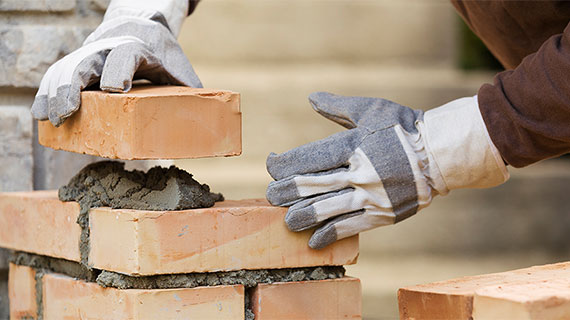

Proper Erosion and Sediment Control Practices
- Initiate appropriate best management practices before commencing construction activities
- Follow state and federal permitting requirements for discharging stormwater runoff
- Use existing vegetation where possible and stabilize disturbed areas within fourteen days
Points to Ponder
- Erosion and sediment controls are required for construction sites that will ultimately disturb more than one acre
- Sediment-laden runoff can cloud and/or pollute receiving waters with suspended particles, often contributing to the bacteria load
- Excessive levels of bacteria adversely affect drinking water, wildlife, plants, fish, and other aquatic organisms
- Excessive levels of bacteria can hinder fishing and other forms of contact recreation
Proper Pressure Washing Practices
- Minimize pressure washing activities when practical
- Practice Pre-Cleaning
- Pick up trash and debris in the wash area
- Use dry methods first (absorbent, rags, sweeping, etc.) to clean oil and dirt from the surface to be washed and the area where wash water will drain across. This will reduce pollutants in wash water.
- Whenever possible, avoid soap and chemical cleansers when pressure washing
- Many of the cleaners can be more harmful to receiving waters than the grit and grime being washed away
Points to Ponder
- Many contractors pressure wash building exteriors, parking lots, and driveway areas
- Soaps and chemical cleansers are applied to remove grit and grime
- These pollutants are flushed into the storm sewer system untreated
- Pollutants from pressure washing and cleaning include heavy metals (copper, lead, nickel, and zinc), hydrocarbons (oil & grease), toxic chemicals (solvents, chlorinated compounds, glycols), acids and alkalies
- These pollutants may have a detrimental impact on wildlife, plants, fish, and other aquatic organisms
- Such pollutants can have a negative impact on our drinking water, fishing, and other forms of contact recreation
Proper Dumpster Maintenance Practices
- Trash should be handled by a licensed waste-hauling service
- Dumpsters should have lids to contain trash
- Dumpsters should be positioned away from any storm sewer inlets
- Persons responsible should routinely inspect for leaks
Points to Ponder
- Dumpster lids are often removed or forced open for ease of use
- Trash not contained blows into the storm sewer system and leaky dumpsters can spill into nearby grate inlets
- This can present harmful conditions for our drinking water, wildlife, plants, fish, and other aquatic organisms
- Fishing and other forms of contact recreation can be negatively affected by leaky dumpsters that spill into our waterways
Proper Detention Pond Maintenance Practices
- Detention ponds should be maintained to prevent water retainage and uncontrolled grass growth
- Trash should be removed as often as necessary to prevent discharges to receiving waters
- Mowing, maintenance, and litter pick-up should be performed on a regular basis
Points to Ponder
- Detention ponds serve facilities by controlling flood waters
- Without regular mowing and trash clean out, detention ponds can retain water
- Shallow water can diminish the pond’s flood capacity, attract undesirable insects and wildlife, and allow bacteria and algae to “bloom”
- Excessive levels of bacteria adversely affect drinking water, wildlife, plants, fish, and other aquatic organisms
- Excessive levels of bacteria can hinder fishing and other forms of contact recreation
Proper Material Storage Maintenance Practices
- All materials should be stored in an orderly fashion
- Where practical, the materials should be stored off of the ground and protected from stormwater runoff
- Keep work areas neat and orderly
- Keep unused containers closed tightly and use drip pans temporarily, when applicable
Points to Ponder
- Many facilities store materials outdoors
- These products may have coatings and/or residues that wash away when exposed to rainwater
- These pollutants accumulate in slow-moving creeks and bayous
- Wildlife, plants, fish, and other aquatic organisms can be exposed to these harmful chemicals
- This can negatively impact our drinking water and impede fishing activities and other forms of contact recreation
Proper Hazardous Waste Disposal Practices
- Store hazardous wastes in proper containers until they can be transported by a licensed hazardous waste disposal company
- Where possible, store these items off of the ground and protected from stormwater runoff
- Never use storm drains for waste disposal
- Do not drain secondary containments without approval
Points to Ponder
- Many facilities must dispose of hazardous byproducts like used cooking oil, leftover chemicals, screened trash, and scrap materials
- These products may have coatings and/or residues that wash away when exposed to rainwater
- These pollutants accumulate in slow-moving creeks and bayous
- Wildlife, plants, fish, and other aquatic organisms can be exposed to these harmful chemicals
- This can negatively impact our drinking water and impede fishing activities and other forms of contact recreation
Proper Watering Practices
- Have the sprinkler system regularly inspected and maintained
- Set automatic sprinklers to only water as much as needed
- Avoid over-spray from sprinkler heads onto impervious surfaces, such as concrete
- To maximize water absorption, set timers for the early hours of the morning or late in the evening
Points to Ponder
- Many facilities rely on sprinkler systems to water nearby landscaping
- Poorly maintained sprinkler systems can over-water landscaping
- Bacteria, fertilizer, grass clippings, and other pollutants can be washed into receiving waters
- Wildlife, plants, fish, and other aquatic organisms suffer as a result of these pollutants
- These pollutants disrupt fishing activities and other forms of contact recreation, as well as impact our drinking water
Proper Spill Response Practices
- Always follow the Spill Prevention Control and Countermeasure Plan as designed
- Never hose down a spill
- Promptly clean up spills with absorbent materials
- Protect storm drains and dispose of clean-up wastes properly
- Notify regulatory agencies as necessary
Points to Ponder
- Many facilities are required to follow Spill Prevention Control and Countermeasure Plans
- Improper response to spills can expose stormwater runoff to hazardous chemicals
- These pollutants accumulate in slow-moving creeks and bayous
- This can contribute to the pollution in our drinking water, and adversely affect wildlife, plants, fish, and other aquatic organisms
- Excess release of these pollutants into our waterways can disrupt fishing activities and other forms of contact recreation
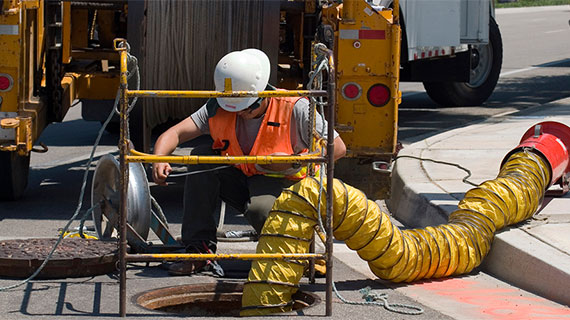

Proper Pressure Washing Practices
- Minimize pressure washing activities when practical
- Practice Pre-Cleaning
- Pick up trash and debris in the wash area
- Use dry methods first (absorbent, rags, sweeping, etc.) to clean oil and dirt from the surface to be washed and the area where wash water will drain across. This will reduce pollutants in wash water.
- Whenever possible, avoid soap and chemical cleansers when pressure washing
- Many of the cleaners can be more harmful to receiving waters than the grit and grime being washed away
Points to Ponder
- Some Districts may require routine pressure wash building exteriors, parking lots, equipment, etc
- Soaps and chemical cleansers are applied to remove grit and grime
- These pollutants are flushed into the storm sewer system untreated
- Pollutants from pressure washing and cleaning include heavy metals (copper, lead, nickel, and zinc), hydrocarbons (oil & grease), toxic chemicals (solvents, chlorinated compounds, glycols), acids and alkalies
- These pollutants may have a detrimental impact on wildlife, plants, fish, and other aquatic organisms
- Such pollutants can have a negative impact on our drinking water, fishing, and other forms of contact recreation
Proper Fleet Maintenance Practices
- Always maintain fleet vehicles in designated areas to avoid fluid spills
- Address all drips and spills, no matter how small, immediately
- Clean up scraps, drips, and residues
Points to Ponder
- Small leaks, drips, and spills create grime on the surface of parking lots and roadways
- Rainwater flushes these pollutants, untreated, into the storm sewer system
- This can contribute to the pollution in our drinking water, and adversely affect wildlife, plants, fish, and other aquatic organisms
- Excess release of these pollutants into our waterways can disrupt fishing activities and other forms of contact recreation
Proper Dumpster Maintenance Practices
- Trash should be handled by a licensed waste-hauling service
- Dumpsters should have lids to contain trash
- Dumpsters should be positioned away from any storm sewer inlets
- Persons responsible should routinely inspect for leaks
Points to Ponder
- Dumpster lids are often removed or forced open for ease of use
- Trash not contained blows into the storm sewer system and leaky dumpsters can spill into nearby grate inlets
- This can present harmful conditions for our drinking water, wildlife, plants, fish, and other aquatic organisms
- Fishing and other forms of contact recreation can be negatively affected by leaky dumpsters that spill into our waterways
Proper Parking Lot Maintenance Practices
- Parking lots should be kept free of trash and should be cleaned regularly
- Consider installing oil/grit/trash separator units to filter untreated parking lot runoff
- Consider utilizing Low Impact Development (LID)/Green Infrastructure implements
Points to Ponder
- Oil, grit, and silt can accumulate in parking lots
- Rainwater flushes these pollutants, untreated, into the storm sewer system
- These pollutants accumulate in slow-moving creeks and bayous
- Wildlife, plants, fish, and other aquatic organisms are exposed to these pollutants
- This can negatively impact our drinking water and impede fishing activities and other forms of contact recreation
Proper Detention Pond Maintenance Practices
- Detention ponds should be maintained to prevent water retainage and uncontrolled grass growth
- Trash should be removed as often as necessary to prevent discharges to receiving waters
- Mowing, maintenance, and litter pick-up should be performed on a regular basis
Points to Ponder
- Detention ponds serve the District by controlling floodwaters
- Without regular mowing and trash clean out, detention ponds can retain water
- Shallow water can diminish the pond’s flood capacity, attract undesirable insects and wildlife, and allow bacteria and algae to “bloom”
- Excessive levels of bacteria adversely affect drinking water, wildlife, plants, fish, and other aquatic organisms
- Excessive levels of bacteria can hinder fishing and other forms of contact recreation
Proper Material Storage Maintenance Practices
- All materials should be stored in an orderly fashion
- Where practical, the materials should be stored off of the ground and protected from stormwater runoff
- Keep work areas neat and orderly
- Keep unused containers closed tightly and use drip pans temporarily, when applicable
Points to Ponder
- Some chemicals and hazardous materials are stored outdoors at District facilities
- These products may have coatings and/or residues that wash away when exposed to rainwater
- These pollutants accumulate in slow-moving creeks and bayous
- Wildlife, plants, fish, and other aquatic organisms can be exposed to these harmful chemicals
- This can negatively impact our drinking water and impede fishing activities and other forms of contact recreation
Proper Hazardous Waste Disposal Practices
- Store hazardous wastes in proper containers until they can be transported by a licensed hazardous waste disposal company
- Where possible, store these items off of the ground and protected from stormwater runoff
- Never use storm drains for waste disposal
- Do not drain secondary containments without approval
Points to Ponder
- Districts must dispose of hazardous byproducts like leftover chemicals, screened trash, and scrap materials
- These products may have coatings and/or residues that wash away when exposed to rainwater
- These pollutants accumulate in slow-moving creeks and bayous
- Wildlife, plants, fish, and other aquatic organisms can be exposed to these harmful chemicals
- This can negatively impact our drinking water and impede fishing activities and other forms of contact recreation
Proper Watering Practices
- Have the sprinkler system regularly inspected and maintained
- Set automatic sprinklers to only water as much as needed
- Avoid over-spray from sprinkler heads onto impervious surfaces, such as concrete
- To maximize water absorption, set timers for the early hours of the morning or late in the evening
Points to Ponder
- Many Districts rely on sprinkler systems to water nearby landscaping
- Poorly maintained sprinkler systems can over-water landscaping
- Bacteria, fertilizer, grass clippings, and other pollutants can be washed into receiving waters
- Wildlife, plants, fish, and other aquatic organisms suffer as a result of these pollutants
- These pollutants disrupt fishing activities and other forms of contact recreation, as well as impact our drinking water
Proper Fire Hydrant Practices
- Be mindful of the discharge whenever a fire hydrant flushing is taking place
- Try to flush onto grassy areas when practical instead of concrete
Points to Ponder
- Fire hydrant flushing is a necessary part of the inspection and maintenance of the water infrastructure
- The initial flush can often produce heavy metals, oils, and other pollutants
- These pollutants accumulate in slow-moving creeks and bayous
- Wildlife, plants, fish, and other aquatic organisms can be exposed to these harmful pollutants
- This can negatively impact our drinking water and impede fishing activities and other forms of contact recreation

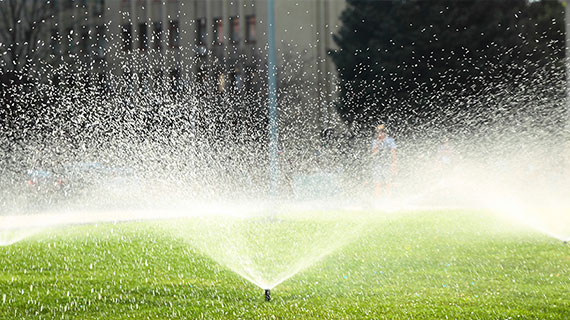
Proper Pressure Washing Practices
- Minimize pressure washing activities when practical
- Practice Pre-Cleaning
- Pick up trash and debris in the wash area
- Use dry methods first (absorbent, rags, sweeping, etc.) to clean oil and dirt from the surface to be washed and the area where wash water will drain across. This will reduce pollutants in wash water.
- Whenever possible, avoid soap and chemical cleansers when pressure washing
- Many of the cleaners can be more harmful to receiving waters than the grit and grime being washed away
Points to Ponder
- Many businesses may routinely pressure wash building exteriors, parking lots, equipment, etc
- Soaps and chemical cleansers are applied to remove grit and grime
- These pollutants are flushed into the storm sewer system untreated
- Pollutants from pressure washing and cleaning include heavy metals (copper, lead, nickel, and zinc), hydrocarbons (oil & grease), toxic chemicals (solvents, chlorinated compounds, glycols), acids and alkalies
- These pollutants may have a detrimental impact on wildlife, plants, fish, and other aquatic organisms
- Such pollutants can have a negative impact on our drinking water, fishing, and other forms of contact recreation
Proper Fleet Maintenance Practices
- Always maintain fleet vehicles in designated areas to avoid fluid spills
- Address all drips and spills, no matter how small, immediately
- Clean up scraps, drips, and residues
Points to Ponder
- Small leaks, drips, and spills create grime on the surface of parking lots and roadways
- Rainwater flushes these pollutants, untreated, into the storm sewer system
- This can contribute to the pollution in our drinking water, and adversely affect wildlife, plants, fish, and other aquatic organisms
- Excess release of these pollutants into our waterways can disrupt fishing activities and other forms of contact recreation
Proper Dumpster Maintenance Practices
- Trash should be handled by a licensed waste-hauling service
- Dumpsters should have lids to contain trash
- Dumpsters should be positioned away from any storm sewer inlets
- Persons responsible should routinely inspect for leaks
Points to Ponder
- Dumpster lids are often removed or forced open for ease of use
- Trash not contained blows into the storm sewer system and leaky dumpsters can spill into nearby grate inlets
- This can present harmful conditions for our drinking water, wildlife, plants, fish, and other aquatic organisms
- Fishing and other forms of contact recreation can be negatively affected by leaky dumpsters that spill into our waterways
Proper Parking Lot Maintenance Practices
- Parking lots should be kept free of trash and should be cleaned regularly
- Consider installing oil/grit/trash separator units to filter untreated parking lot runoff
- Consider utilizing Low Impact Development (LID)/Green Infrastructure implements
Points to Ponder
- Oil, grit, and silt can accumulate in parking lots
- Rainwater flushes these pollutants, untreated, into the storm sewer system
- These pollutants accumulate in slow-moving creeks and bayous
- Wildlife, plants, fish, and other aquatic organisms are exposed to these pollutants
- This can negatively impact our drinking water and impede fishing activities and other forms of contact recreation
Proper Detention Pond Maintenance Practices
- Detention ponds should be maintained to prevent water retainage and uncontrolled grass growth
- Trash should be removed as often as necessary to prevent discharges to receiving waters
- Mowing, maintenance, and litter pick-up should be performed on a regular basis
Points to Ponder
- Detention ponds serve the District by controlling floodwaters
- Without regular mowing and trash clean out, detention ponds can retain water
- Shallow water can diminish the pond’s flood capacity, attract undesirable insects and wildlife, and allow bacteria and algae to “bloom”
- Excessive levels of bacteria adversely affect drinking water, wildlife, plants, fish, and other aquatic organisms
- Excessive levels of bacteria can hinder fishing and other forms of contact recreation
Proper Material Storage Maintenance Practices
- All materials should be stored in an orderly fashion
- Where practical, the materials should be stored off of the ground and protected from stormwater runoff
- Keep work areas neat and orderly
- Keep unused containers closed tightly and use drip pans temporarily, when applicable
Points to Ponder
- Many businesses store materials outdoors
- These products may have coatings and/or residues that wash away when exposed to rainwater
- These pollutants accumulate in slow-moving creeks and bayous
- Wildlife, plants, fish, and other aquatic organisms can be exposed to these harmful chemicals
- This can negatively impact our drinking water and impede fishing activities and other forms of contact recreation
Proper Hazardous Waste Disposal Practices
- Store hazardous wastes in proper containers until they can be transported by a licensed hazardous waste disposal company
- Where possible, store these items off of the ground and protected from stormwater runoff
- Never use storm drains for waste disposal
- Do not drain secondary containments without approval
Points to Ponder
- Many businesses must dispose of hazardous byproducts like used cooking oil, leftover chemicals, and scrap materials
- These products may have coatings and/or residues that wash away when exposed to rainwater
- These pollutants accumulate in slow-moving creeks and bayous
- Wildlife, plants, fish, and other aquatic organisms can be exposed to these harmful chemicals
- This can negatively impact our drinking water and impede fishing activities and other forms of contact recreation
Proper Watering Practices
- Have the sprinkler system regularly inspected and maintained
- Set automatic sprinklers to only water as much as needed
- Avoid over-spray from sprinkler heads onto impervious surfaces, such as concrete
- To maximize water absorption, set timers for the early hours of the morning or late in the evening
Points to Ponder
- Many Districts rely on sprinkler systems to water nearby landscaping
- Poorly maintained sprinkler systems can over-water landscaping
- Bacteria, fertilizer, grass clippings, and other pollutants can be washed into receiving waters
- Wildlife, plants, fish, and other aquatic organisms suffer as a result of these pollutants
- These pollutants disrupt fishing activities and other forms of contact recreation, as well as impact our drinking water